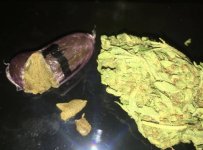AUTHENTIC PURE MOROCCAN, WORLD-FAMOUS FOR PRODUCING THE RENOWNED MOROCCAN HASHISH
Traditional hash plant from the Rif area near to Ketama and Chefchaouen, famous for producing kif (the traditional blend of cannabis flowers with tobacco) and the famous Moroccan blond hash.
This pure Moroccan strain is one of the fastest psychoactive sativa landraces on the planet, due to its semi autoflowering traits and its very short flowering time. Traditionally, this strain is sown at the beginning of spring, starting to bloom in June, and being harvested as early as August, when it begins to be processed and beaten by hand to produce the traditional Moroccan hashish, which varies in quality depending on the size of the sieve and the amount of time the flowers are beaten.
Moroccan plants are small/medium sized. They start with fairly wide leaves, but when they reach their sexual maturity and flowering they develop as a pure sativa with foxtail floral structures, quickly accumulating to form good sized buds. There are 2 main phenotypes according to their structure. The most common phenotype grows very columnar and tall, with the second phenotype being smaller, shorter and more branched.
This variety is grown at a very high plant density in its native land, with very little fertilizer and water, which means it has developed excellent resistance against heat and drought, performing perfectly with little care and low levels of nutrients, which makes it an ideal strain for outdoor guerrilla growing in hot and dry climates.
Morocco is the largest hashish producer in the world, with its renowned hashish being the most exported, especially to Europe. Unfortunately, since the beginning of the 21st century, a massive introduction of foreign indoor genetics from Europe and North America has taken place in Morocco, in order to increase the hashish production and potency.
While this has been achieved on certain farms where these foreign genetics are cultivated with more care, the genetic contamination has also meant that Moroccan hashish has gradually lost its characteristic psychoactivity and distinctive 'golden' and mellow terpenes, which made Moroccan hashish a world reference in the cannabis scene of the 20th century.
Certain Moroccan growers have now realized that these new foreign genetics require much more care, water and fertilizers, are harvested much later than traditional Moroccan strains, and do not have the same resistance against heat and outdoor pests. The old Moroccan strains are still the most suitable for growing in large remote plots with poor irrigation resources that cannot be tended with as much care.
For this reason, a group of old school Moroccan growers have offered us ancient heirloom Moroccan seeds for their reproduction and preservation, before the unstoppable genetic contamination completely wipes out the old Moroccan strains in their original state.
As a result of this preservation work, ACE Seeds offers you this mythical hash plant in its purest original form.
AVAILABLE IN STANDARD AND FEMINIZED FORMAT
P2 LANDRACE STRAIN
100 % SATIVA
FLOWERING INDOORS: 7-8 WEEKS
FLOWERING OUTDOORS: AUGUST
YIELD / M2: AVERAGE
RESISTANCE AGAINST SPIDER MITES: HIGH
RESISTANCE AGAINST MILDEW: HIGH
RESISTANCE AGAINST BOTRYTIS: AVERAGE-HIGH
RESISTANCE AGAINST WHITE FLY: HIGH
RESISTANCE AGAINST COLD: AVERAGE-HIGH
RESISTANCE AGAINST HEAT: VERY HIGH
LATITUDE: 0-50 º
THC: 2.5-5 %
CBD: 0-2 %
CBG: 0-0.16 %
Terpene profile: It mainly contains the following monoterpenes: high amounts of alpha pinene and beta myrcene, followed by beta pinene in smaller quantities. Sesquiterpenes: mainly beta-caryophyllene (2/3 parts) and smaller amounts of alpha-humulene (1/3).
GENETICS: 2nd generation Moroccan pure sativa.
STRUCTURE: It begins with wider leaves in its first stages of life, later developing as a small/medium sized pure sativa with thin leaves.
BOUQUET: Woody, earthy, spicy and herbal, with 'golden' and honeyed touches, reminiscent of classic Moroccan blond hash.
HIGH: Light potency. Cerebral and physically sensual start, which increases and distorts perceptions. Its development increases introspection and inner life, finishing with a pleasant relaxation and sedation, causing the classic “wasted” face and red eyes produced by good Moroccan hashish.
GROWING TIPS
Especially recommended for outdoor growing in hot and dry climates due to its excellent adaptability to heat and drought in its place of origin. Outdoors and due to its semi-autoflowering tendencies, it is recommended to start them in large pots to maximize their growth before the flowering stage, and to increase the ratio of females.
Landrace strain that has not yet been fully adapted to the stable photoperiods and artificial lamps of indoor growing, and although it can be easily grown indoors, it is recommended not to water or feed her excessively.
To keep parental plants indoors in the mother room, we recommend the use of long photoperiods (20/4 or higher), and the use of large pots that do not restrict their root space, since otherwise it may start to flower in the mother room due to its semi-autoflowering tendencies.
Excellent breeding tool to produce outdoor semi-autoflowering hybrids, with fast flowering and high resistance against heat and drought.
We recommend soft/moderate levels of nutrients for the whole cycle.
Traditional hash plant from the Rif area near to Ketama and Chefchaouen, famous for producing kif (the traditional blend of cannabis flowers with tobacco) and the famous Moroccan blond hash.
This pure Moroccan strain is one of the fastest psychoactive sativa landraces on the planet, due to its semi autoflowering traits and its very short flowering time. Traditionally, this strain is sown at the beginning of spring, starting to bloom in June, and being harvested as early as August, when it begins to be processed and beaten by hand to produce the traditional Moroccan hashish, which varies in quality depending on the size of the sieve and the amount of time the flowers are beaten.
Moroccan plants are small/medium sized. They start with fairly wide leaves, but when they reach their sexual maturity and flowering they develop as a pure sativa with foxtail floral structures, quickly accumulating to form good sized buds. There are 2 main phenotypes according to their structure. The most common phenotype grows very columnar and tall, with the second phenotype being smaller, shorter and more branched.
This variety is grown at a very high plant density in its native land, with very little fertilizer and water, which means it has developed excellent resistance against heat and drought, performing perfectly with little care and low levels of nutrients, which makes it an ideal strain for outdoor guerrilla growing in hot and dry climates.
Morocco is the largest hashish producer in the world, with its renowned hashish being the most exported, especially to Europe. Unfortunately, since the beginning of the 21st century, a massive introduction of foreign indoor genetics from Europe and North America has taken place in Morocco, in order to increase the hashish production and potency.
While this has been achieved on certain farms where these foreign genetics are cultivated with more care, the genetic contamination has also meant that Moroccan hashish has gradually lost its characteristic psychoactivity and distinctive 'golden' and mellow terpenes, which made Moroccan hashish a world reference in the cannabis scene of the 20th century.
Certain Moroccan growers have now realized that these new foreign genetics require much more care, water and fertilizers, are harvested much later than traditional Moroccan strains, and do not have the same resistance against heat and outdoor pests. The old Moroccan strains are still the most suitable for growing in large remote plots with poor irrigation resources that cannot be tended with as much care.
For this reason, a group of old school Moroccan growers have offered us ancient heirloom Moroccan seeds for their reproduction and preservation, before the unstoppable genetic contamination completely wipes out the old Moroccan strains in their original state.
As a result of this preservation work, ACE Seeds offers you this mythical hash plant in its purest original form.
AVAILABLE IN STANDARD AND FEMINIZED FORMAT
P2 LANDRACE STRAIN
100 % SATIVA
FLOWERING INDOORS: 7-8 WEEKS
FLOWERING OUTDOORS: AUGUST
YIELD / M2: AVERAGE
RESISTANCE AGAINST SPIDER MITES: HIGH
RESISTANCE AGAINST MILDEW: HIGH
RESISTANCE AGAINST BOTRYTIS: AVERAGE-HIGH
RESISTANCE AGAINST WHITE FLY: HIGH
RESISTANCE AGAINST COLD: AVERAGE-HIGH
RESISTANCE AGAINST HEAT: VERY HIGH
LATITUDE: 0-50 º
THC: 2.5-5 %
CBD: 0-2 %
CBG: 0-0.16 %
Terpene profile: It mainly contains the following monoterpenes: high amounts of alpha pinene and beta myrcene, followed by beta pinene in smaller quantities. Sesquiterpenes: mainly beta-caryophyllene (2/3 parts) and smaller amounts of alpha-humulene (1/3).
GENETICS: 2nd generation Moroccan pure sativa.
STRUCTURE: It begins with wider leaves in its first stages of life, later developing as a small/medium sized pure sativa with thin leaves.
BOUQUET: Woody, earthy, spicy and herbal, with 'golden' and honeyed touches, reminiscent of classic Moroccan blond hash.
HIGH: Light potency. Cerebral and physically sensual start, which increases and distorts perceptions. Its development increases introspection and inner life, finishing with a pleasant relaxation and sedation, causing the classic “wasted” face and red eyes produced by good Moroccan hashish.
GROWING TIPS
Especially recommended for outdoor growing in hot and dry climates due to its excellent adaptability to heat and drought in its place of origin. Outdoors and due to its semi-autoflowering tendencies, it is recommended to start them in large pots to maximize their growth before the flowering stage, and to increase the ratio of females.
Landrace strain that has not yet been fully adapted to the stable photoperiods and artificial lamps of indoor growing, and although it can be easily grown indoors, it is recommended not to water or feed her excessively.
To keep parental plants indoors in the mother room, we recommend the use of long photoperiods (20/4 or higher), and the use of large pots that do not restrict their root space, since otherwise it may start to flower in the mother room due to its semi-autoflowering tendencies.
Excellent breeding tool to produce outdoor semi-autoflowering hybrids, with fast flowering and high resistance against heat and drought.
We recommend soft/moderate levels of nutrients for the whole cycle.
Attachments
-
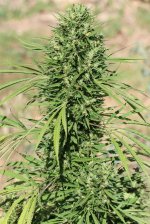 Beldia cola finishing4.jpg148.1 KB · Views: 493
Beldia cola finishing4.jpg148.1 KB · Views: 493 -
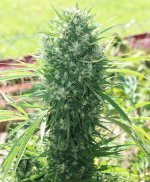 Beldia cola finishing3.jpg155.2 KB · Views: 476
Beldia cola finishing3.jpg155.2 KB · Views: 476 -
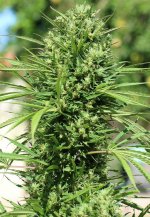 Beldia cola finishing6.jpg164.8 KB · Views: 443
Beldia cola finishing6.jpg164.8 KB · Views: 443 -
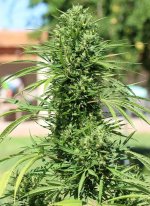 Beldia cola finishing5.jpg177.8 KB · Views: 491
Beldia cola finishing5.jpg177.8 KB · Views: 491 -
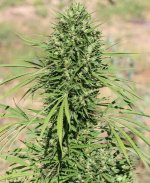 Beldia cola finishing7.jpg177.3 KB · Views: 434
Beldia cola finishing7.jpg177.3 KB · Views: 434 -
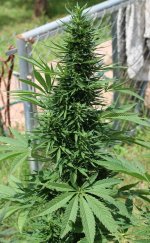 Beldia plant finishing11.jpg140.1 KB · Views: 637
Beldia plant finishing11.jpg140.1 KB · Views: 637 -
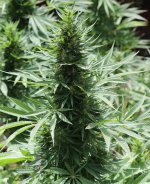 Beldia plant finishing7.jpg148.6 KB · Views: 429
Beldia plant finishing7.jpg148.6 KB · Views: 429 -
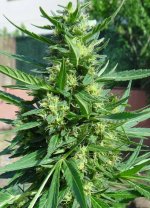 bedlia cola finishing11.jpg165.8 KB · Views: 421
bedlia cola finishing11.jpg165.8 KB · Views: 421 -
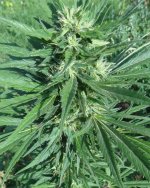 bedlia cola finishing10.jpg170.9 KB · Views: 419
bedlia cola finishing10.jpg170.9 KB · Views: 419 -
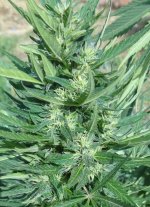 bedlia cola finishing12.jpg158.5 KB · Views: 453
bedlia cola finishing12.jpg158.5 KB · Views: 453

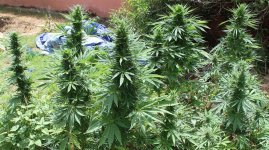
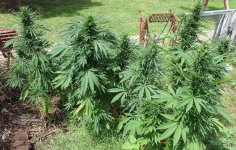
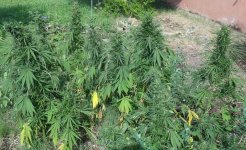
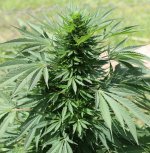
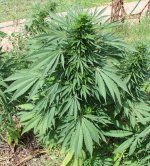
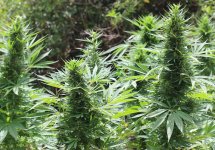
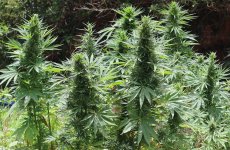
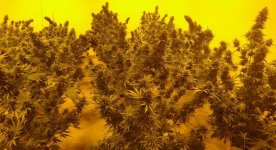
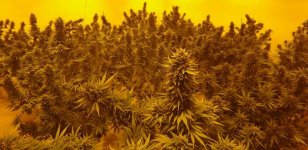
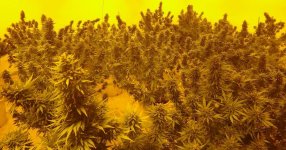
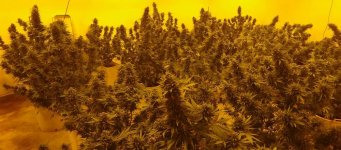
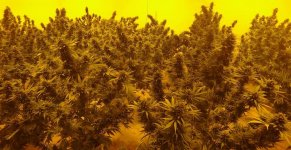
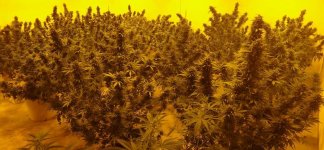
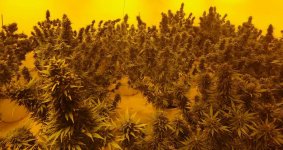
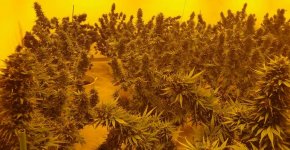





 especially if you were travelling alone. You are right, it's shocking to arrive to the Rif and see the endless cannabis plantations, it's obvious that the Moroccan government has not done much to stop the overwhelming hash industry in the Rif, this is due to the locals in the Rif fought for the independence of the country and the Moroccan monarchy allowed farmers to bloom their hash industry in return. It's a well known non written agreement between them.
especially if you were travelling alone. You are right, it's shocking to arrive to the Rif and see the endless cannabis plantations, it's obvious that the Moroccan government has not done much to stop the overwhelming hash industry in the Rif, this is due to the locals in the Rif fought for the independence of the country and the Moroccan monarchy allowed farmers to bloom their hash industry in return. It's a well known non written agreement between them. 